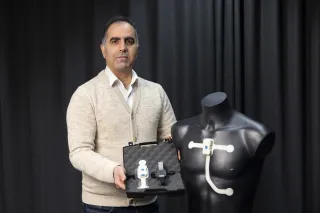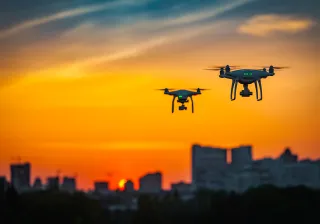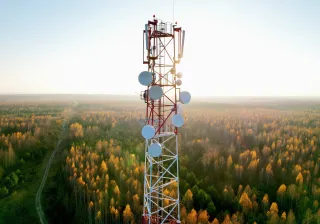When talking about the circular economy, the role of digitalisation is almost always mentioned. The deployment of digital solutions may reduce the use of resources and facilitate the implementation of circular economy systems. However, as yet not much research has been done on how digitalisation enables the transition to a circular economy in practice. The CloseLoop strategic research project of the Academy of Finland systematically assesses challenges associated with the development of new business models, and brainstorms new circular economy business models and concepts for Finnish companies. These concepts are developed and tested in collaboration with companies and stakeholders, including end-users and consumers.
Digitalisation may provide assistance for achieving three objectives of the circular economy. The digitalisation of the industrial sector increases resource efficiency, helps to close the loop of material cycles and contributes to keeping materials in use for a longer time. Intelligent solutions enable, for example, the reduction of energy consumption, optimisation of logistics chains and more efficient use of capacity. Digitalisation can be used to gain access to material-specific data and resource consumption, which enables the product life cycle to be optimised for circular economy solutions. Good examples of this include Resq Club and Lunchie, which offer restaurant food for consumers through a digital platform. They reduce food waste by providing an easy way to buy food that would otherwise go to waste. eRENT offers companies a platform for the digital sharing and tracking of machines and devices, making it possible to improve their usage rates.
Circular economy systems with interconnected cycles often contain large amounts of data. Digitalisation offers new ways to collect and use it in real time. This data can be put to use when decisions need to be made about the phases of the product’s life cycle, reuse of waste materials, logistical arrangements and the operators needed in the value network. For example, Konecranes offers warehouse management as a service that includes remote monitoring and preventive equipment maintenance and advanced digitalisation, enabling the monitoring of the entire supply chain. The solution allows Konecranes customers to efficiently provide their suppliers with information on warehouse usage levels.
In the circular economy, the coordination of materials and information flows is of crucial importance. Information on the quantity and quality of products and the raw materials they contain must be collected, stored and used efficiently. It must be possible to do this in a reliable and transparent manner, for which such methods as block chain technology may provide a solution. Digital technologies enable data storage combined with materials and the use of waste as a resource.
Digitalisation comes with a lot of challenges
The key challenges of digitalisation are related to business models, data ownership, data sharing, data integration, collaboration and competence. Issues related to the availability and ownership of data are of crucial importance. There are also challenges related to the sharing of data between competitors, protection of privacy, the IPR rights and confidence building. Integration of the large amounts of data owned by various operators is also needed, because the management of data flows is also a big challenge.
Other important issues include the organisation of cooperation between different partners, the definition of joint processes, search for suitable partners and pooling of different areas of competence. The pooling of the competences in information and communication technology and sustainable development also has its own challenges. At the moment, many organizations lack sufficient competence related to the basic concepts of the circular economy and sustainable business models.
Hackathons, training and research projects promote cooperation across disciplines
Cooperation, networking, increased transparency and the provision of information are key methods for promoting digitalisation. Collaboration can be practiced by sharing expertise between organisations and pooling competences between different actors. The operators should come from different fields and include both small and large organisations. In training, the cooperation between schools and enterprises could be increased. Various competitions and hackathons could be increasingly used for cooperation purposes. Participation in research and development projects is also a good way of creating cooperation networks.
It is important to involve consumers or end-users in the planning and implementation of a service, because consumers themselves function as service providers in many services that use platforms. In such a case, getting a critical mass involved in the process from the outset is of paramount importance, and the service must offer a first-rate solution to consumer needs in terms of both attractiveness and usability. One example is Zadaa, which provides consumers with a mobile application that makes it easy to put used clothes up for sale and to find clothes that fit. Digital solutions make it possible to reach consumers and end users in a more efficient way than before. It is important to note that instead of the earlier one-way communication, the solutions needed today must allow end-users to give feedback on products and services.
Under the theme “Digitalisation as enabler of the circular economy”, we organized a workshop at the From Waste to Valuables event held at the Hotel Torni of Tampere on 23 November 2017. It was attended by 62 representatives of business and research organisations. The workshop presented three innovative examples in which digitalisation forms an essential part of the operations: Uusioaines Oy, Hiedanranta and Resq Club. We discussed in small groups how digitalisation contributes to the circular economy, what challenges this entails and how they can be solved.






